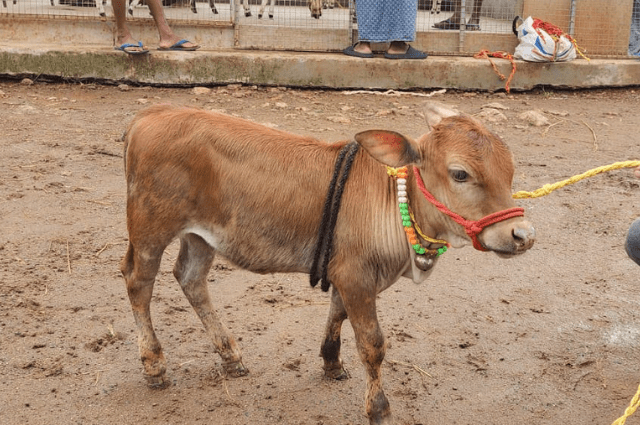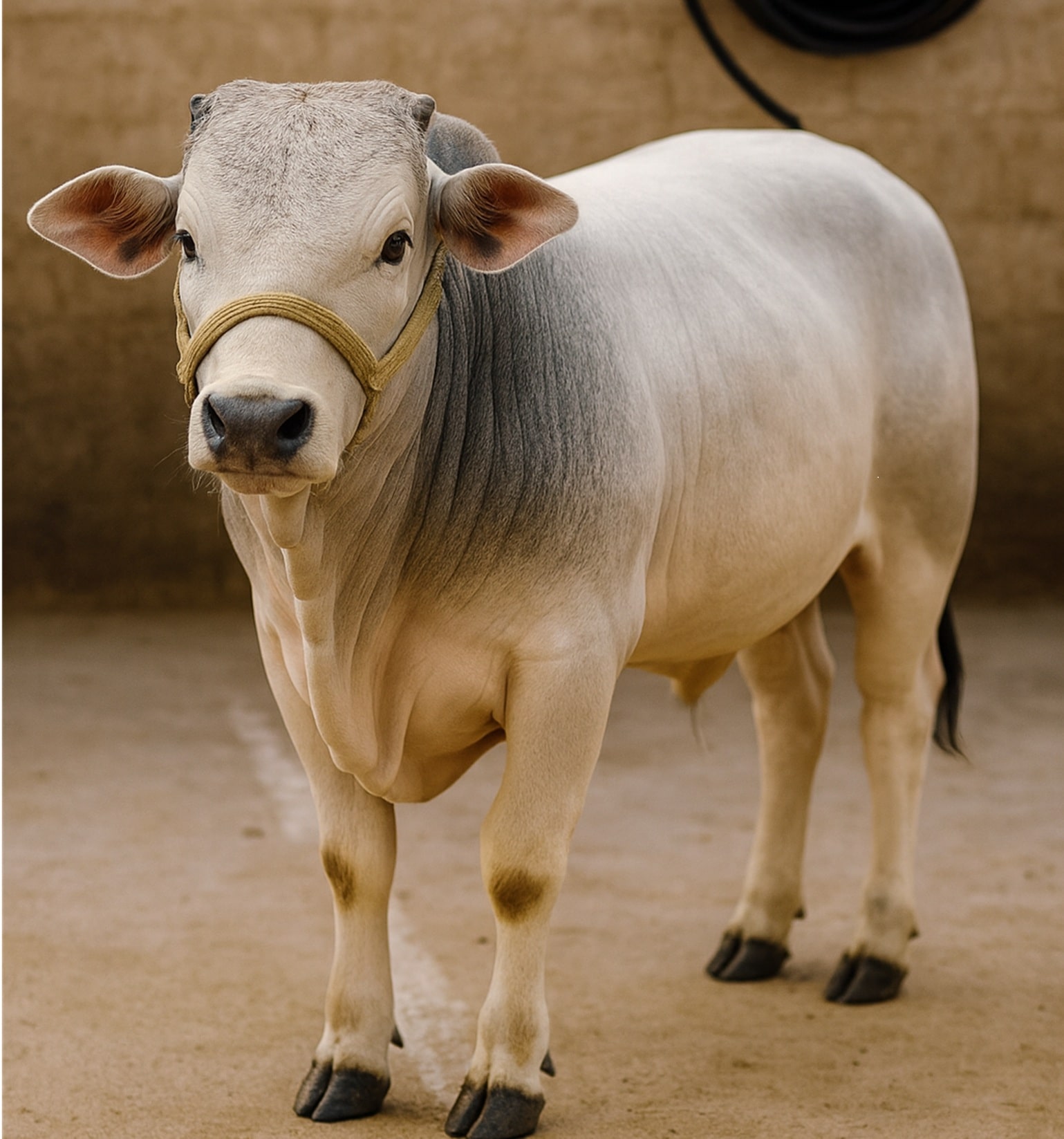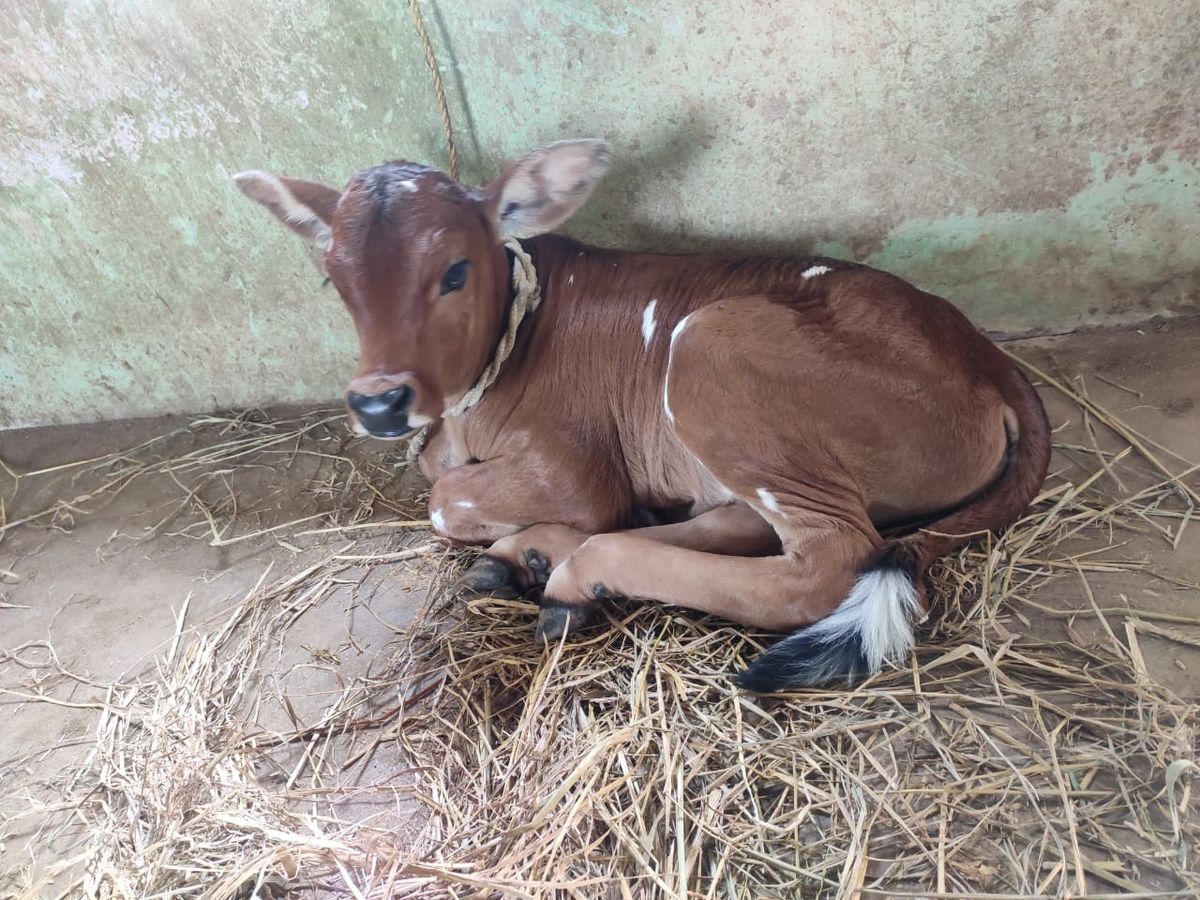Why Are Punganur Cow Diseases Rare Than Crossbreeds?
Punganur Cow Diseases are Rare Compared with Modern Crossbreeds because this native dwarf breed has evolved with exceptional immunity over centuries. The Punganur cow, known for its compact size and gentle temperament, originated in the harsh and dry region of Andhra Pradesh.

Due to natural selection, not artificial breeding, this breed developed strong resistance to several illnesses commonly found in high-yielding crossbreeds. Understanding these health advantages helps farmers, breeders, and dairy owners recognize why Punganur cows remain one of India’s most valuable and disease-resilient native cattle.
1. Rare Occurrence of Mastitis
One of the most prevalent conditions of high-yielding crossbreeds like the Holstein Friesians and Jerseys is Mastitis, which is a painful infection of the udder. Mastitis is, however, far less prevalent in Punganur cows.
This inherent opposition is due to:
- Their smaller udder size
- Reduced yet low-fat milk production.
- Increased resistance and improved structure of the udder.
- Low levels of stress have been observed in commercial dairy breeds.
Due to the infrequency of mastitis, farmers incur fewer expenses on veterinary, antibiotics and repetitive treatments.
2. Very Low Incidence of Foot-and-Mouth Disease (FMD)
Although there is no breed of FMD immunity, Punganur cows are the ones with significantly lower incidences than crossbreeds. Their original genetic composition, coupled with a very good adjustment to the Indian weather conditions, is what contributes to making them have a stronger immune system.

There are also native breeds that recover faster when infected and have fewer complications and less risk of death.
3. Punganur Cow Diseases: Rare Cases of Metabolic Disorders
Crossbreeds are usually infected with metabolic illnesses such as:
- Ketosis
- Milk fever
- Acidosis
- Bloat
These circumstances occur because they have high milking pressure and high feed demands. The Punganur cows, however, possess a natural, balanced metabolism. Their moderate food consumption, low rate of digestion and their consistent absorption of nutrients guard against these disorders. This is because the Punganur cow is not developed to produce aggressive milk; hence, its metabolism is stable, and there is minimal risk of the occurrence of typical metabolic diseases that are common with large dairy breeds.
4. Minimal Reproductive Complications
Crossbred cows have also been associated with reproductive issues, including infertility, repeat breeding, retained placenta and retarded calving. The Punganur cows are a naturally hardy breed, and they rarely experience such problems. Their small body stature, instinctive calving performance, and genetic purity are helpful towards effortless reproduction cycles.
Farmers report:
- Higher conception rates
- Fewer calving complications.
- Natural heat cycles
- Strong mothering instincts.
This enables the Punganur cow to be handled in smaller and traditional farms.
5. Low Susceptibility to Parasitic Infections
Crossbreeds respond severely to climate changes and are also very susceptible to internal and external parasites. Punganur cows are, however, less susceptible to:
- Ticks
- Lice
- Intestinal worms

- Skin parasites
Their oily skin structure, inherent secretion of natural oils and the perpetual adaptation to dry climatic conditions guard them against the high degree of parasitism. They normally heal quickly and do not need a lot of chemical interventions, even in the case of illness.
6. Rare Respiratory Diseases
If the crossbreeds are more prone to respiratory infections, pneumonia, viral flu, and seasonal respiratory distress are common occurrences in crossbreeds, owing to their low heat-handling capacity and being sensitive to the weather patterns in India.
Interpretations of Punganur cows to semi-arid environments have been shown to resist respiratory diseases due to:
- Strong lung capacity
- Heat tolerance
- Lower stress levels
- Rapid ability to adapt to changing temperatures.
They possess innate strength that ensures that their herd is healthy all year round.
7. Punganur Cow Diseases: High Resistance to Digestive Disorders
Punganur cows have fewer digestive problems like diarhea, indigestion and gastric diseases compared to crossbreeds. They are well-developed with a high degree of gut health due to generations of grazing on native fodder, which enables them to digest coarse feed effectively. This reduces:
- Feed-related illnesses
- Gut inflammation
- Sudden digestive upsets
This causes them to be the best in places where the quality of fodder differs with the season.
Why Punganur Cows Stay Healthier Than Crossbreeds
The native Indian breeds, except the Punganur cow, have been the products of natural selection and not artificial breeding. This helps them to preserve good genes, natural immunity and strength. They are also one of the healthiest breeds of cattle in India since they can survive on low feeds, under the care of minimal care, and in harsh climates.
Final Thoughts on Punganur Cow Diseases & Breed Value
The Punganur cows are immune to most of the diseases that are prevalent in the crossbreeds. Their resistance to diseases, adaptation to weather, high genetics and their ability to survive under stress without worry make them easy to keep and less expensive to the small farmers. Since the world requires tough and low-maintenance cows, the Punganur cow is a worthy native breed that should be conserved.
🐮 Petsfolio – Trusted Source for Healthy Cows & Farming Guidance
Petsfolio offers healthy native cows, such as Punganur cows, and professional support to the farmers and first-time cattle owners. Their staff assists you in selecting the correct breed, provides managers and feeding tips, and makes sure that you keep the pet in good shape. Petsfolio helps in traditional farming where there is the use of real cattle and a sure commitment to the long-term success
Send us a Message
Enjoy this post?
Check out some more great articles and other content.
Many dogs find grooming stressful, especially those sensitive to new environments, st...
Read The ArticleDog insurance claim decisions can be confusing for pet owners, especially when choosi...
Read The ArticleDog insurance of the right type is of urgent necessity to pet parents who have to tra...
Read The Article
 Download App
Download App Join
Join Support
Support












